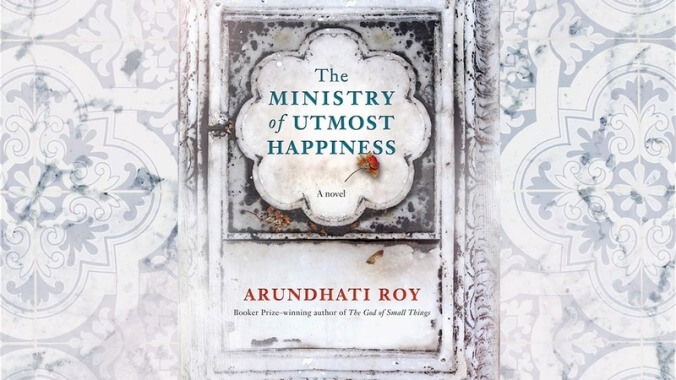Arundhati Roy’s The Ministry Of Utmost Happiness never figures out what kind of novel it wants to be

In the 20 years since she won the Man Booker Prize for her debut novel, The God Of Small Things, Arundhati Roy has written only non-fiction. She authored editorials about Kashmiri separatism, criticized neoliberal economic trends in post-millennium India, and publicly lamented the then-nomination of Narendra Modi for prime minister as “a tragedy.”
Perhaps it’s the plethora of issues and stances that lend her second novel, The Ministry of Utmost Happiness, a kind of genre and narrative schizophrenia. What begins as a compelling tale of Anjum, a Muslim trans woman eking out a life in Old Delhi—botched hormone injections, familial wrath, prostitution—turns into a wide swath of narrative non-fiction, with no particular subject or theme in mind. Pollution and poverty are targeted just as much as the “saffron parakeets,” Roy’s term for the Hindu nationalists who aided Modi’s rise to power. She is at her incisive best when taking on globalization and its disaffected in Delhi:
“Where shall we go?” the surplus people asked. “You can kill us, but we won’t move,” they said. There were too many of them to be killed outright. … All day long the roads were choked with traffic. The newly dispossessed, who lived in the cracks and fissures of the city, emerged and swarmed around the sleek, climate-controlled cars, selling cloth dusters, mobile phone chargers, model jumbo jets, business magazines, pirated management books… The passengers looked out of their car windows and saw only the new apartment they planned to buy, the Jacuzzi they had just installed and the ink that was still wet on the sweetheart deal they had just closed. They were calm from their meditation classes and glowing from yoga practice.”
